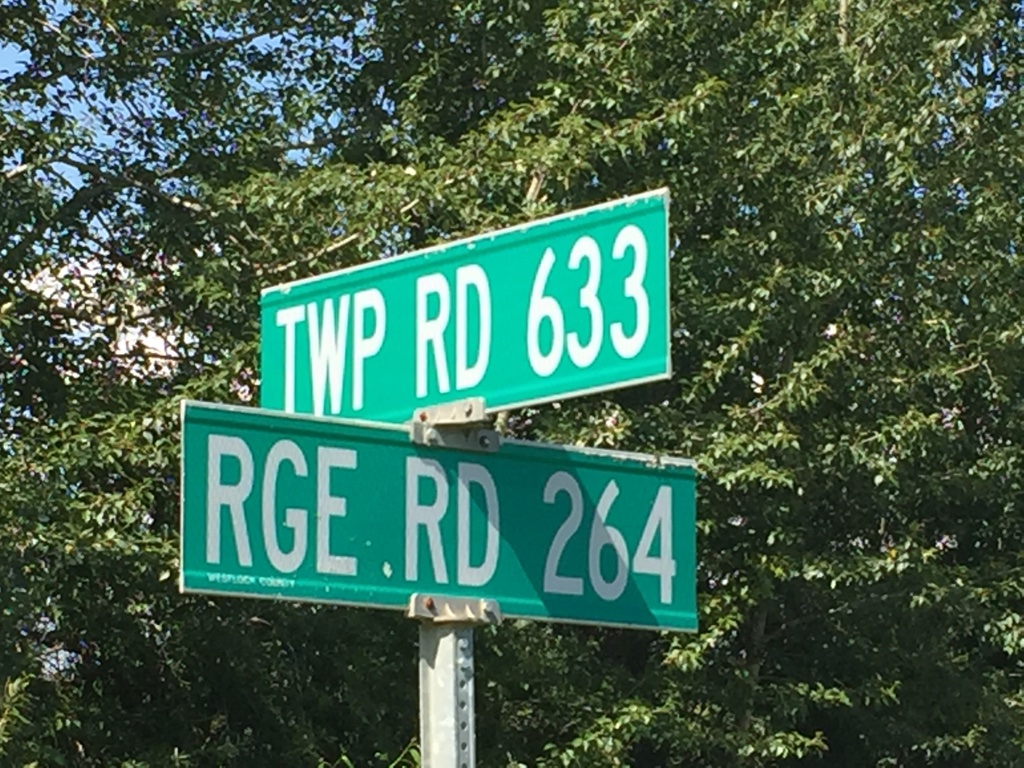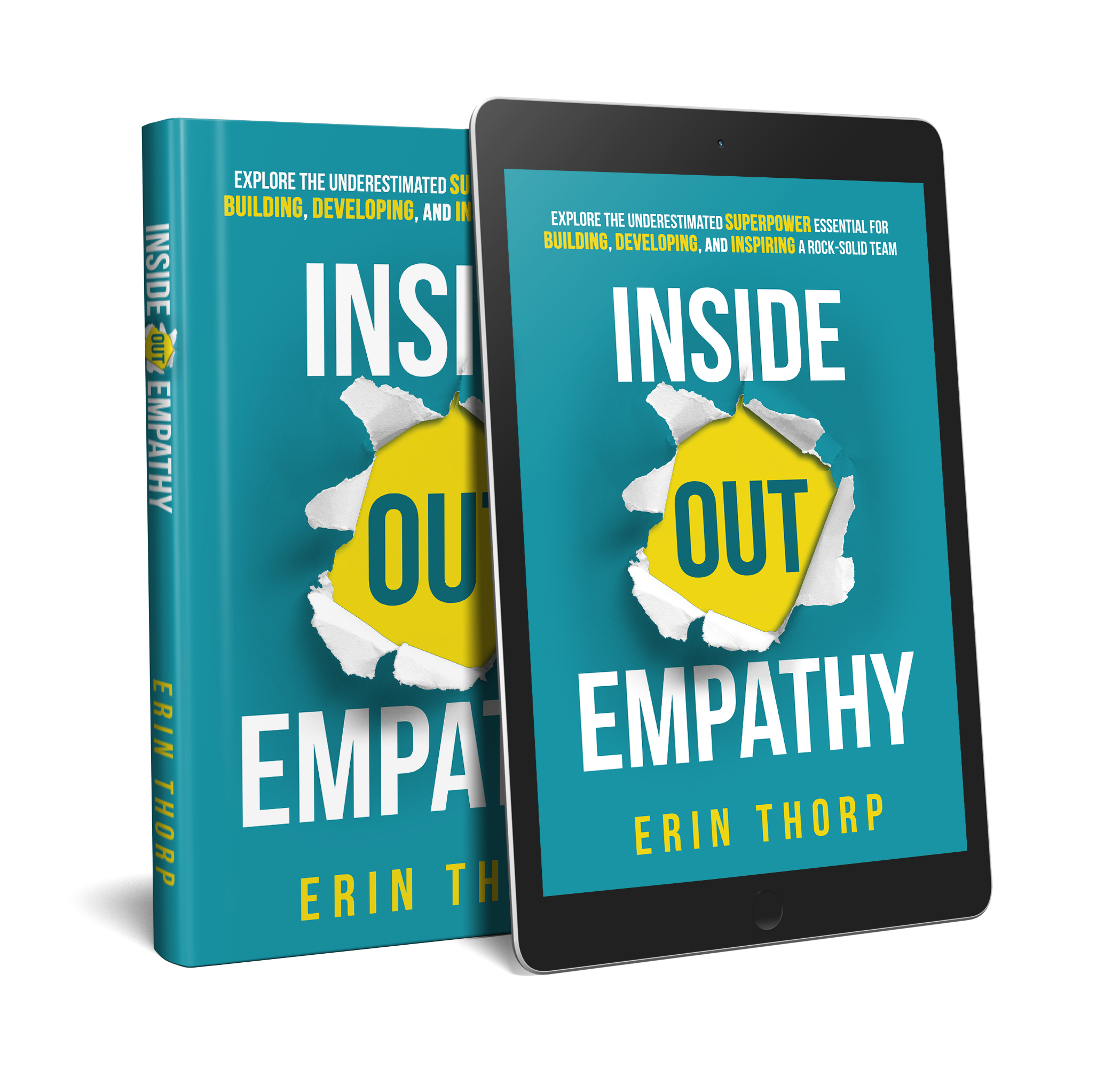Hi, I’m Erin,
I’m so excited you stopped by!
I’m an Author, Speaker, and Coach for leaders who struggle with conflict communication and performance during high-stress times. I support leaders in navigating difficult conversations, building powerful teams, and communicating with empathy so they can lead confidently.
I believe emotional intelligence and technical excellence aren’t mutually exclusive. Both skill sets are imperative to becoming the confident, compassionate leader your team will eagerly follow.
The skills often categorized as “soft” — connection, empathy, vulnerability — are actually the most difficult to learn but are key to creating leaders who make an impact in their personal lives, their company’s, and the world. I hold space without judgment and help leaders see themselves and others with curiosity.
There’s no “one-size-fits-all” approach to leadership; a leader must discover and develop their own emotional intelligence and unique way of leading so they can have great results and even greater relationships.
Hi, I’m Erin,
I’m so excited you stopped by!
I’m an Author, Speaker, and Coach for leaders who struggle with conflict communication and performance during high-stress times. I support leaders in navigating difficult conversations, building powerful teams, and communicating with empathy so they can lead confidently.
I believe emotional intelligence and technical excellence aren’t mutually exclusive. Both skill sets are imperative to becoming the confident, compassionate leader your team will eagerly follow.
The skills often categorized as “soft” — connection, empathy, vulnerability — are actually the most difficult to learn but are key to creating leaders who make an impact in their personal lives, their company’s, and the world. I hold space without judgment and help leaders see themselves and others with curiosity.
There’s no “one-size-fits-all” approach to leadership; a leader must discover and develop their own emotional intelligence and unique way of leading so they can have great results and even greater relationships.
With 5 generations in the workforce, we desperately need empathetic leaders who connect authentically and engage with deep vulnerability.
Rocky Beginnings in Farm Country
I’m the oldest child of four and my parents are recovering addicts. Up until I was nine, we lived at the height of their addiction. With three young siblings to take care of, I don’t remember a time in my life when I wasn’t in charge of leading somebody.
My teenage years were a constant struggle between my parents and myself around who was actually in charge because for so long, it was me. I left home at 17 to pursue my education in engineering and begin providing for myself. I was ready to start my own journey.
No thank you, I don’t want to be a teacher or nurse
The high school guidance counselor in my small northern Alberta town told me I could be a school teacher or a nurse.
I come from a family of nurses and school teachers — and while I love and support them — I didn’t love either choice for me.
I loved math and science and took all of the advanced courses I could. I took home the massive university catalogs, because there was no online world yet. What do I need? What can I do with math and science? Because I didn’t even really know engineering was a thing. I had an uncle who was an engineer — could I do it too?
After studying them for the weekend, I thought this engineering thing might be the thing. It looked like you can get a job after your bachelor’s degree. I applied to both the university close to my home and one further away and was accepted to both. I chose the one further away because I wanted to push myself and have some distance between the family and me, probably out of teenage rebellion. Now that I have a 16-year-old daughter, I can see a lot of that and that’s a whole other conversation.
So I moved away from our family farm to the city, and went into engineering. Not to date myself but this was in the mid-1990s and at the time, there were about 20% women in engineering. Sadly, we really haven’t moved the needle on that stat much despite some really inspiring movements.
I was in the minority. I wasn’t really sure if engineering was for me or where I was supposed to be. I loved the coursework and the content. But it wasn’t a place I immediately felt like, Oh, I belong here. I decided I had better get some work experience as an engineer and signed up for an internship program. During my third year, I ended up getting a 16-month contract working for a construction company.
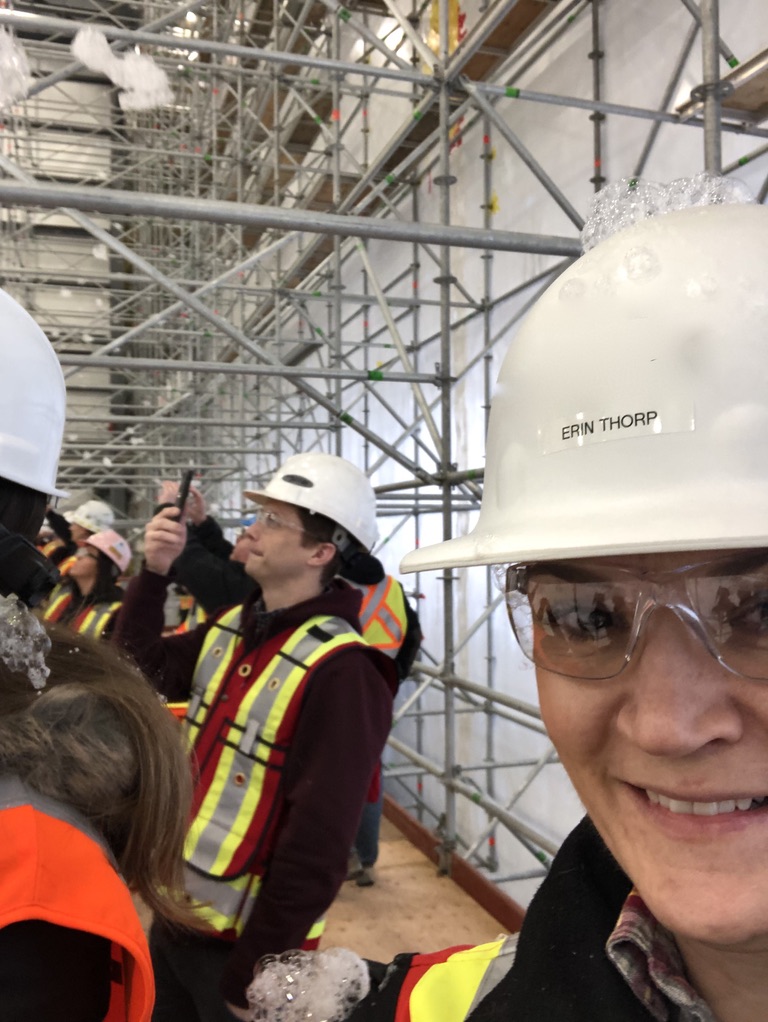
At Home in the Construction Industry
There are a lot of parallels between construction and farm life. My dad always had us doing all kinds of things with machinery, building things, and planting crops. Construction seemed like a really good fit — it felt like home.
So when I graduated, I went back into construction. A few years into my career, I started receiving feedback that I was “too emotional.”
I’d hear things like, “You’re really good at leading, there’s just one problem, you need to work on fixing your emotions,” “You can’t be falling apart,” and, “You gotta be tough and get a game face.” For a number of years, I tried to fix it in a masculine way of hiding my emotions. I wasn’t curious about them and I certainly didn’t want to understand them or get curious and learn about them. I was being told to fix it in terms of getting rid of them. And if I could have cut that part out of me I would have.
What I Thought Leadership Was
I thought leadership meant being void of emotion, having a good game face, and being tough. It was what I was told, and what was modeled to me.
And don’t we just see that everywhere? I was in a masculine-dominated industry, working with men. So the modeling for me was in requests of men to get your emotions out of here. Despite my best efforts, I wasn’t able to achieve what was being requested of me.
And then I became a parent.
Learning Flexibility & Empathy
Flexibility became a hot topic in our house as my husband, also an engineer, and I navigated our careers as new parents. It wasn’t easy in an industry where the systems and structures were built by masculine thinking and way of being.
I took a step away from direct construction and went into a more flexible sales role. And it was there I started to get a lot of support and direction in getting to know myself.
Even though I was working with a lot of men, there were more women in my technical sales role. I discovered that sales was much more people-oriented and began to understand that to be successful in sales, you have to know people and be able to connect.
Here I was, no one telling me to fix my emotions – Instead, they told me to understand emotions in myself and others
This new environment allowed me to explore that there wasn’t something wrong with me, and perhaps I just needed to understand myself better. This was the first time as an adult I began to work on my interior landscape and it sparked a great deal of curiosity and learning.
During the next 5 years, my husband and I added 2 more children to our family and both of us continued to grow in our careers. There were meetings, site visits, and travel involved now, and the balancing of career demands with school and extracurricular activities was becoming overwhelming and unmanageable. We were both trying to make it work in the old paradigm, this old system, where neither of us wanted what was being offered.
Putting into Practice what I had Learned
I decided to leave my sales career and go back to construction. I figured I’d learned a few things while I was away and could put all that new knowledge into practice and do it differently this time. Fifteen years into my career, I was right back where I started.
I could see all the same issues, from a slightly elevated position in terms of the corporate hierarchy and thought perhaps I might be able to do something about it. That’s when I started to really get involved in EDI (equity, diversity, and inclusion). What I found was shocking and not all that surprising. I found groups of women gathering to talk about what women needed. This very unbalanced conversation with the wrong people around the table.
Adding humanness back into the technical fields
I believe it all starts with empathy for self, then others. Only then can we act from a place of compassion and inclusiveness.
At this point in my career, I felt like Alice in Wonderland falling down a rabbit hole — this work became all-consuming.
I realized quickly that while I’d been doing my work on understanding my emotions, there was so much more to do. I continued with and deepened my practices, explorations, and conversations. I had to learn more about myself to learn more about others. I learned how I was currently showing up in order to be able to show up differently for others. This work impacted me, my journey with my kids, husband, career, family, and friends. It’s touched every corner of my life.
I came to understand that when it comes to technical people — left-brained, logical, rational, and systems oriented people — there’s an assumption we don’t have emotional worlds. And the problem with that assumption is that it is so false. We’re all human beings, we all have an inner landscape, we all have emotions and feelings.
I became increasingly curious about the degree with which our emotions are either running the show of our lives or how out of touch with them we are. I had no idea what my emotions were trying to tell me, and was blind to the guidance that they were providing. I also didn’t enjoy the exploration but I only dealt with them when they were so strong, I couldn’t tuck them in a box any longer.
Once you see something you can’t unsee it.
I began to notice that my profession, the engineering and construction industry, was full of people who were highly technically capable and who cared deeply about their work. Most were incapable of fully holding their own emotion and therefore unable to hold the emotions of others. There was a huge gap in what we were learning as technical professionals and I saw a way that I could contribute back to a profession that I loved.
Our emotional capacity is a spectrum. On one end, which was where I was early in my career, you’re being led around by your emotions, they’re spilling out everywhere, making everybody uncomfortable. They’re big, messy and feel completely uncontrollable and unpredictable. On the other end of the spectrum, you have people who “don’t do emotion.” They compartmentalize and minimize. They rarely ever show it and truly believe that they don’t have emotions.
My work is about all of us coming back to the center where we all have emotions. Let’s get back in touch with them, figure them out, and how as leaders, do we model that behavior and help our teams go there? The magic superpower in high-performing teams — emotional connection. And that happens through the practice of empathy.
How to work with erin
INDIVIDUALS
Erin’s clients describe her as a dynamic and engaging trainer. She employs a unique blend of expertise and empathy. Erin tailors her approach, drawing from two certifications in coaching, Integral Coaching Canada and Positive Intelligence and partnerships with leading Leaders Development Authorities, to help leaders navigate challenges in conflict, communication, and performance during high-stress situations.
TEAMS
Through her engaging facilitation style, she imparts the superpower of empathy, emphasizing its role in fostering effective teams. Erin, an authorized partner with Blanchard and Wiley, brings forth a comprehensive suite of research-validated leadership development programs, ensuring leaders can enhance team dynamics, trust, and essential management skills.
KEYNOTES
Are you looking for a dynamic, relatable and inspiring speaker for your next event? Drawing on her 20-year career leading high-performing teams in non-traditional industries, Erin blends her experience and expertise in a way that will captivate and motivate your people.
Fun Facts
A glimpse at my exterior landscape.
I’m …
-
- the author of Inside Out Empathy
- Certified as an Associate Integral Coach™
- a civil engineer but NOT your typical engineer
- a builder of all things
- excellent at uncovering and meeting customer needs
- a firm believer in flexibility and freedom
- highly intuitive and empathic
- an avid learner and student of life
- a believer that when something feels right, it is right.
- approachable! Don’t be afraid to say hi or start a conversation.
A glimpse at my interior landscape.
I’m a …
-
- big sister
- wife of 20+ years
- mamma bear to 3 teenagers
- farm girl from Alberta
- huge fan of public speaking
- Virgo and an ISFJ
- organizer and planner of everything
- lover of fries & mayo, red wine, herbal tea, floating, and hot baths!
- avid reader and writer
- believer in the healing power of a hug and a good cry
Professional Bio
Erin Thorp (she/her)
Erin is an empathic speaker, writer and coach for leaders who struggle with conflict, communication, and performance during high-stress times. She supports leaders in navigating difficult conversations, building powerful teams, and communicating with empathy so they can lead confidently.
Erin spent 20 years in the engineering and construction industries leading teams and delivering projects. In 2017, she authored Inside Out Empathy, a book that explores using the superpower of empathy to build effective teams.
Erin has a Bachelor of Science degree in Civil Engineering from the University of Calgary and is an Associate Certified Coach through Integral Coaching Canada. As a Channel Partner with The Ken Blanchard Companies, Erin delivers a variety of Blanchard® products, both face-to-face and virtually, including SLII®.
She believes that there is a leader in everyone. Erin is committed to discovering your leader within and supporting you to lead with impact—from the inside out.
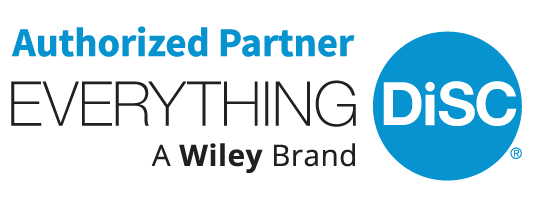
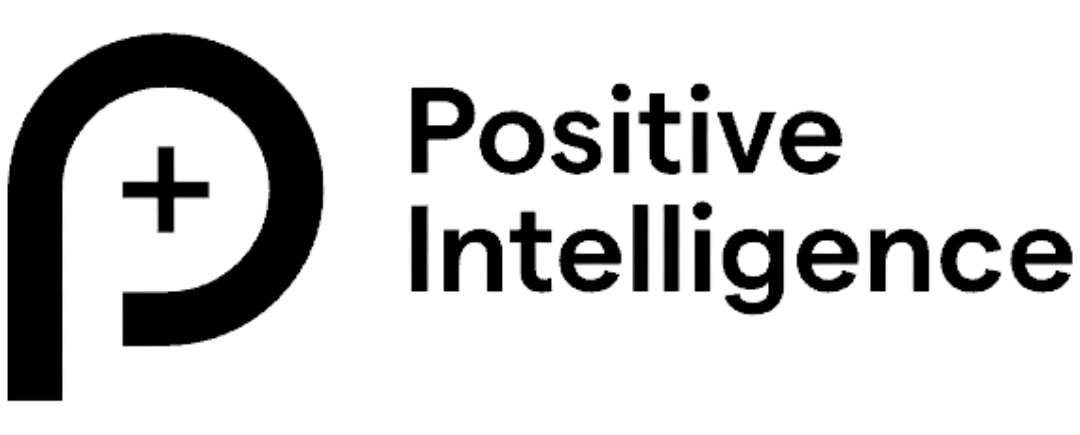


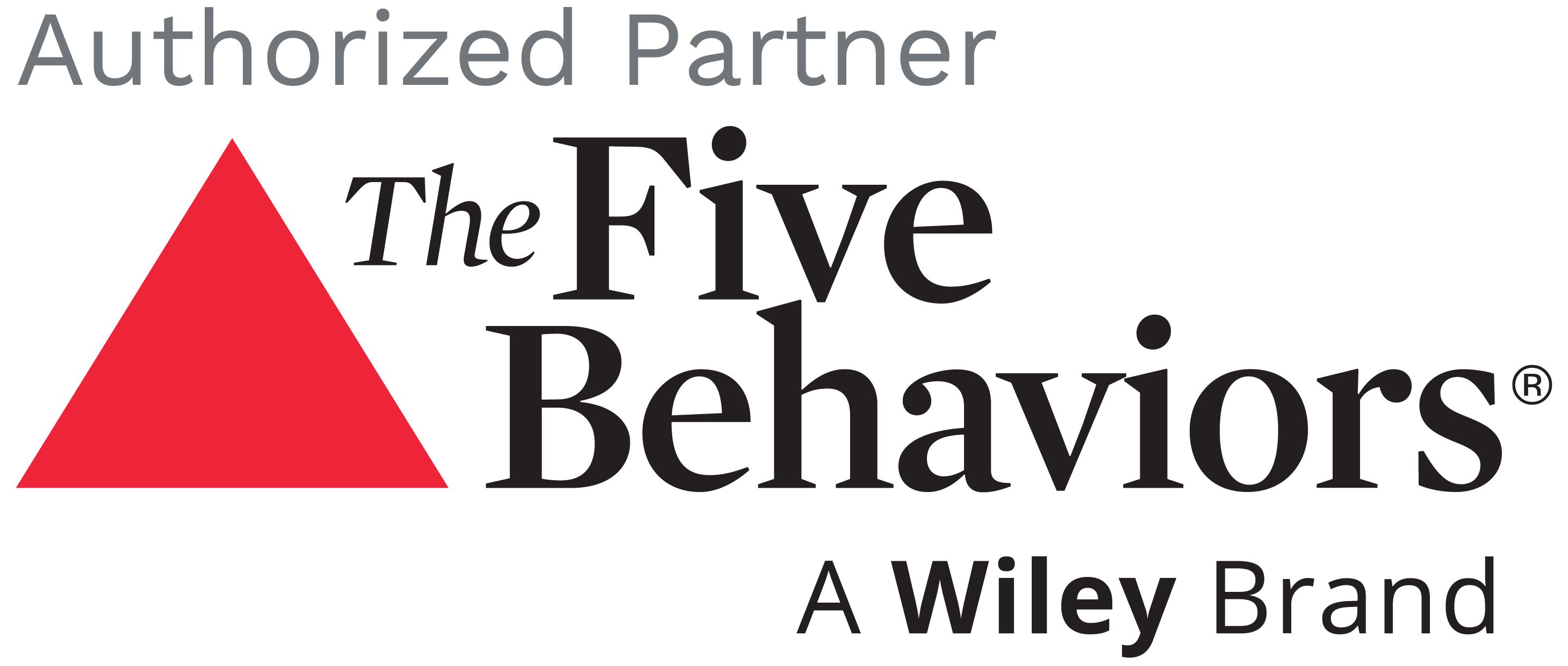
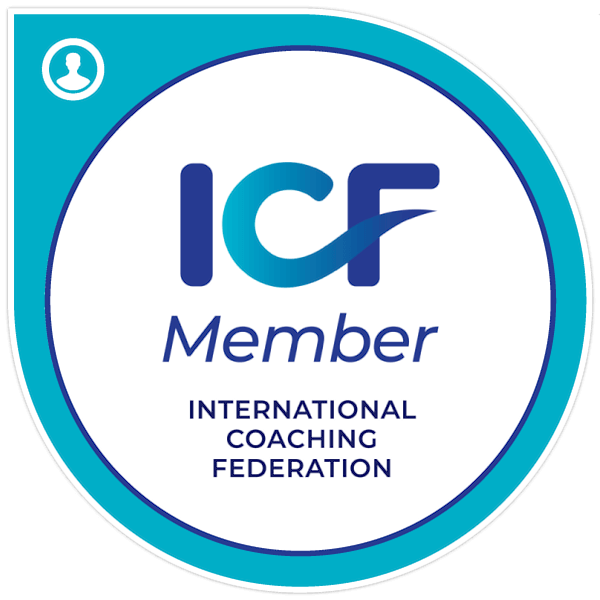
Understanding empathy and implementing empathy are two entirely different things.
And contrary to most beliefs, empathy IS NOT an innate trait that you’re either born with or not. Nope. Kick that belief to the curb. Empathy is a skill that you can learn, develop and strengthen. Think of empathy like a muscle, similar to our biceps, we all have them — some are just stronger than others.


